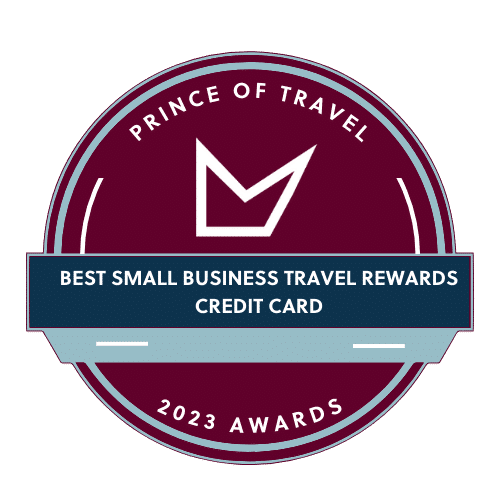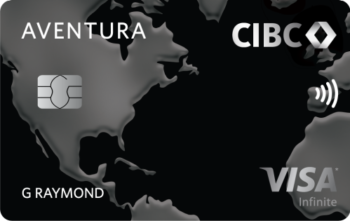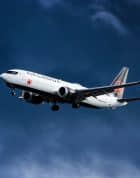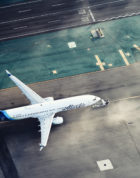Hawaii has been open to Canadian travellers since December 2020; however, its stricter entry requirements and intra-island travel restrictions have still kept many travellers at bay.
Following the US fully opening its borders on November 8, Hawaii has aligned its entry requirements accordingly, and will no longer require additional testing for US travellers.
Meanwhile, for those of us in Canada, travelling to Hawaii has gotten a lot simpler as of the same date, allowing us to enter Hawaii with a cheap and simple rapid antigen test.
Hawaii Travel Restrictions
Entry to Hawaii is only slightly more complex than entering the US mainland, with an additional Health Form required as part of the process.

How Can Canadians Enter Hawaii?
Travellers are allowed to enter Hawaii through all international airports and by sea via a cruise. As of October 2021, when departing Canada by air, travellers are required to present proof of vaccination.
Travellers coming from Canada must fulfill all of the following conditions before entering Hawaii:
- Present evidence of a full course of COVID-19 vaccines 14 days prior to arrival.
- Mixed vaccines are permitted.
- A negative COVID-19 test taken three days prior to departure.
- Either a PCR or an antigen test will suffice.
- Complete the Hawaii Safe Travels Form prior to departure.
The Safe Travels Form requires uploading a COVID-19 test result or a vaccination record in order to obtain a QR code, which you’ll need to present upon landing.
A negative COVID-19 test result is required regardless of whether you fly non-stop to Hawaii or take a connecting flight:
- If you fly directly to Hawaii from Canada, a test result will be required prior to your flight.
- Meanwhile, if you connect through the continental US on the way to Hawaii, you’ll still need a test result to enter the United States on the first leg of your journey.

Testing & Quarantine Upon Return
Travellers must complete a negative molecular test within 72 hours of boarding their flight back to Canada.
This is fairly easy to obtain on all the Hawaii islands, although it can certainly be expensive.
Outside of Oahu, where the capital of Honolulu lies, expect COVID-19 testing appointments to be booked up in advance and cost around US$150. In Oahu, the usual suspects of CVS and Walgreens are available for free NAAT tests.
As of October 2021, Switch Health’s RT-LAMP Test Kit can also be ordered prior to your trip and self-administered within 72 hours of your return flight to Canada.
We’d recommend purchasing a Switch Health RT-LAMP Test Kit for the smoothest travel experience on your return journey. At $149 + tax, this is the same price if not cheaper than most testing options in Hawaii.
Fully vaccinated Canadians can return to Canada by air without undergoing quarantine, upon completing a negative test at the airport on arrival into Canada. Canadians are considered fully vaccinated if they’ve received a full series of one of (or a mix of) Health Canada’s approved vaccines – Pfizer, Moderna, AstraZeneca, or Johnson & Johnson – at least 14 days before entering Canada.

Current Health Requirements in Hawaii
Technically, each of Hawaii’s islands is allowed to impose their own restrictions; however, current restrictions are generally in line with each other. Masks are required in all indoor settings and not required in outdoor settings.
There are no capacity or lockdown restrictions to speak of, from social distancing to masking indoors to restaurants.
Since June, testing was no longer required for travel between the islands, either, meaning that island-hopping is well and truly back.

How to Get to Hawaii
Travelling to Hawaii on points has largely been a point of frustration for Canadian travellers, especially on the East Coast.
For the winter travel season, Air Canada will be operating the following routes:
- Montreal, Toronto, Calgary, and Vancouver to Honolulu
- Vancouver, Calgary, and Toronto to Maui
- Vancouver to Kona
With Aeroplan, these routes will cost 25,000 Aeroplan points one-way in business class from Vancouver, and 35,000 Aeroplan points one-way in business class from everywhere else.
However, these prices correspond to the lower end of Aeroplan’s dynamic pricing on Air Canada flights, and it’s relatively rare to find flights that actually fall at the lower end of the spectrum.
Therefore, a trip to Hawaii would be an optimal use of eUpgrades earned as part of Aeroplan Elite Status, under the “Latitude Attitude” strategy. You could book the much more reasonably priced Economy Latitude flight and then apply eUpgrades to upgrade into business class.
In addition, Hawaii would also represent a great opportunity to use your Priority Rewards if you have any, allowing you to receive a 50% discount on eligible Aeroplan points redemptions.
For those on the West Coast, using British Airways Avios to fly Alaska Airlines’s routes to Hawaii is also a sweet spot, costing just 13,000 Avios in economy class each way from Seattle to Honolulu.
For those who seek a higher-value award booking, consider using Turkish Miles & Smiles to fly to Hawaii from anywhere in North America for just 10,000 miles one-way in economy class.
Turkish miles are best earned from Citi ThankYou points in the US, transferring at a ratio 0f 1:1, or by converting Marriott Bonvoy points at an optimal ratio of 60,000 Bonvoy points = 25,000 Turkish miles.
Conclusion
Hawaii has aligned its entry requirements to those of the United States at large. For Canadian travellers, this means that the testing and vaccination requirements for flying to Hawaii are now exactly in line with those of flying to the continental US.
Proof of vaccination and a negative COVID-19 antigen test will suffice, along with a Health Form to complete.
However, PCR tests are relatively expensive to obtain outside of Honolulu, and travellers may want to plan a few days in Honolulu for a free test or bring along their Switch Health self-test kits for a smoother return journey.
With travel restrictions now as loose as they have been since the start of the pandemic, I’m sure many Canadians will be making Hawaii their destination of choice during the upcoming winter and Spring Break holidays.
As always, you can refer to our Travel During COVID-19 Resource for Canadians for the most up-to-date information on travelling in the pandemic era.


















Thanks Ricky! My understanding is that effective Nov 8, 2021 for Canadians flying to Hawaii, only the following two Covid-related requirements remain in place: (1) Vaccine proof (2) Negative Covid-19 test test.
My understanding is that it is no longer necessary to complete the Hawaii Safe Travels Form prior to departure nor is it necessary to upload test results to it.
This stuff is so confusing is that I’m hoping you can confirm that I’m right (or not!).
Thanks and best regards,
Peter
This is correct. Direct flights from Canada do not require the Safe Travels form. I just arrived in Hawaii without any issues. Domestic flights within the Hawaiian islands also do not need it.
Make sure you keep the boarding pass from your direct flight from Canada, you may be asked for it when you check into a hotel or car rental.
This was my understanding as well. Only required to do Safe Travels if your flight from Canada is not direct, and has a stop over in the United States.
YVR-OGG on TK only costs 7.5k for Y and 15k for J, but ut does not show up on the website and you need to call in to book.
I was able to get Covid coverage through the Canadian Snowbird Association under their MediPac Travel Insurance $5,000,000.
I am Canadian. If I get a covid test and ok travel to hawaii. When returning zo Canada, where do I get the covid test required by Csnadisn immigration inorder fly back to Canada? Is tgere a specific location in Honolulu?
Thanks
Air Canada has cancelled three of my rescheduled flights to Honolulu, last I heard they are not flying to Honolulu till Dec 1st. From other articles that I have read the State of Hawaii only accepts a Nasal Swab tests which can only be done 72 hours from the last leg of your flight plans to Hawaii. i.e. I am flying from Edmonton to Honolulu via Vancouver, San Francisco so my test will only be accepted if it is done 72 hours from the time my flight leaves San Francisco.
We plan to look into the availability of COVID-19 testing for travellers across Canada in a future article.
Here in BC, we cannot get the testing done for travel. Your call is screened and you must show symptoms and signs. We don’t get to have that option. Even if you lie and get the text, your results are not guaranteed in a certain time frame. This Covid text plan is not going to work for anyone in BC..
I was wondering what the travel policy was for Non-Canadians living in Canada ( For example on an open work permit, no PR yet). Would I not be allowed to travel to and from Hawaii and Toronto under this program unless I can prove I am a citizen of Canada?
Please post any information on private labs that can offer the Covid test required for Hawaii entry once you have this information. We live in Vancouver.
I am hoping a possible compromise is to allow self-quarantine until the results are available. I have the Altitue-25k status so could bring a second suitcase full of food and snacks. haha
In my case there is hope but doesn’t look good. I made my booking for buisness class for three weeks in September on the first day of the promotion. The flights can be cancel free until Aug 31 so decided to take a shot even though I expected only a 10% chance I would be able to take the trip. With the latest news, I would say still only a 25% chance the trip will happen. If they insist on the PCR test rather than the rapid test then it is unlikely. In case the test needs to be done in the US I booked a round trip to Pittsburgh three days before my flight from Toronto which I can cancel if the test can be done in Canada or the land border opens (highly unlikely). It is also unclear if someone "out-of-state" would be able to get a test at CVS which is not possible now. The other problem, other than only having 72 hours to do the test and get the result, is the time difference. The flight from Vancouver arrives at 8pm which is 2am EST. So the earliest test would be 7am EST the following mornng. This brings the time down to 65 hours at best. To get the result 2 hrs before the Toronto flight (In order to cancel) would be 10am EST, so that brings the time down to 51 hours. So in my case I would need to find an approved service able to return the result in 48hrs. Given that currently it would be very difficult to even get the result in 72 hours I am hopeful but not optimistic. Will know more once the requirements are decided in the next couple of weeks.
This sounds promising considering I just booked tickets to Hawaii at the beginning of Sept. What still worries me at this point is 1) the FDA-approved PCR test from a CLIA certified laboratory is this not an American thing? and 2) whether or not we’ll have to quarantine once we return to Canada
The Hawaiian authorities should be providing more information on the testing requirement prior to August 1, and hopefully that includes clarification about international testing standards. I’ll be sure to update this post when we know more.
Other than faking it, can you even get a test if you don’t show symptoms?
Yes, I know several Montrealers who’ve been able to get tested while asymptomatic. The 72-hour turnaround time might be trickier to guarantee, and may require a visit to a private clinic to be on the safe side.
In Ontario, anyone who wants to get a test is able to. Just look up your local testing centre, go to their website, pre-register (among other things, it will ask which day you plan to attend), show up any time during that day, no appointment required. It does take up to 4 days to get the result.
This is amazing. To be honest, the rules keep changing and it makes anyone question how they can even be confident that their tests are adequate. I can now cancel my pcr booking with lifelabs and opt for a simple rapid antigen test at Costco instead. Thank you for making things clear.
I don’t know why people would want to risk traveling outside of Canada at this point. There was an article on hospital cost for a COVID-19 patient in US. It ended up being over $1 million (he was on a ventilator). To me, the hassle of travel, quarantine and financial risk is not worth it at this point.
It’s interesting to note the variance in people’s attitudes. Many readers express views similar to yours, but then again there are other readers who’ve told me they’ll be on the first flight to Greece on July 1 🙂
Amazing news…I’m packing already. With many countries opening up and opting for a "proof of a negative COVID-19" test, before access is granted, how about an article detailing specifics on who completes these tests, where to obtain them, costs, time required before you have the necessary paperwork is in-hand etc.. Would be a shame to get all dressed and have no place to go.
I can share my testing experience, I was tested voluntarily at my local hospital’s Covid-19 testing center this past week.
Unfortunately, I don’t know how I’d coordinate testing before my trip, there’s a chance that I may land in Hawaii before my test results come back if I did the test at my local hospital with their stated turnaround times. The hospital was quoting 3-5/4-5 days for results, which was the timeframe for my results.
Thanks for sharing Andrew!